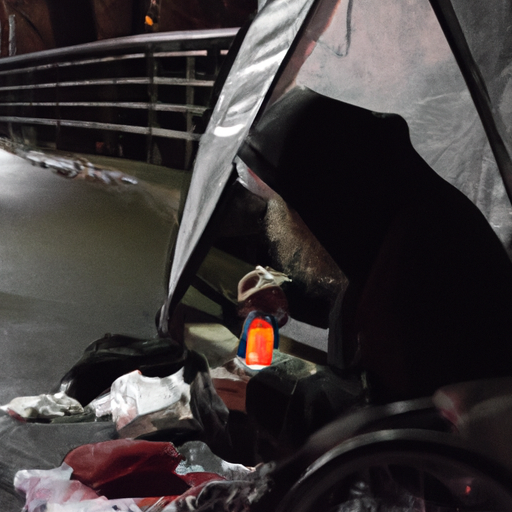Unraveling the Widespread Impact of the Canadian Opioid Crisis
It is increasingly clear that the opioid crisis is not just a health crisis, but one that has far-reaching societal implications, fueling a rise in crimes and homelessness across Canada. A recent example of this correlation came to light in a [news piece](https://www.thespec.com/news/ontario/toronto-police-investigating-fatal-stabbing-in-the-citys-west-end-as-homicide/article_313a0a01-554a-5893-a213-4a3f9af8c9f9.html) by The Hamilton Spectator, highlighting the arrest of a homeless man with a history of opioid abuse, accused of fatal stabbing in Toronto’s west end.
The Crime-Opioid Epidemic Nexus
Many studies have previously confirmed the strong link between substance abuse, particularly opioids, and crime rates. Substance misuse can lead to criminal behavior to sustain the addiction and, in some cases, violent outbursts under the effects of these substances. The incident in Toronto, involving the homeless man with opioid-abuse history, serves as a stark reminder of this aspect of the opioid crisis. The man had been residing in encampments, which have also seen significant increases in recent times as a consequence of the concurrent homelessness crisis. The interconnectedness of homelessness, opioid addiction, and crime rates, raises the complexity bar on devising effective solutions.
Addressing the Impact of Opioid Crisis
It is crucial to understand that combating Ontario’s opioid crisis necessitates addressing not only its direct health consequences but also the ripple effects it has on our communities. Our approach needs to embed this understanding into its core. Aligning with this thought, here are some ongoing and potential steps our leaders and communities can take:
- Increase the availability and use of naloxone: Naloxone is a potentially life-saving medication that can reverse an opioid overdose. Widespread distribution to communities, particularly among high-risk groups and their families, is imperative.
- Supportive housing programs: Housing stability plays a crucial role in improving health outcomes for individuals experiencing homelessness and substance use disorders. Thus, bolstering the provision of supportive housing can be an effective tool in this battle against the opioid crisis.
- Strengthen community infrastructure: This can be achieved by increasing the funding for local mental health and addiction service providers and facilitating a robust community support network for those grappling with opioid use and homelessness.
- Law enforcement involvement: The police should work in close collaboration with social service agencies and drug rehabilitation centers to ensure individuals requiring help can access it in a timely manner, rather than getting entangled in the criminal justice system.
The Call for an Opioid Class Action
In the face of the escalating crisis, communities across Canada are recognizing the need for recompense from the pharmaceutical companies that played a significant role in sparking this crisis. Opioid class action suits are being considered as a measure, both as a modicum of justice to those affected, and as a source of funding to combat the crisis at a systemic level.
As our fight against the opioid crisis continues, it’s crucial that we consider the wider societal influences and effects, in order to develop comprehensive, informed strategies.
Conclusion
The opioid crisis in Canada continues to unfurl its multifarious impacts on society. While we primarily perceive this crisis as a health issue, it, inescapably, permeates the social fabric, influencing crime rates and homelessness. In combating this crisis, it is essential to acknowledge and address the interconnections of these issues.
By prioritizing actions like widespread naloxone distribution, strengthening supportive housing programs, enhancing community infrastructure, and engaging timely law enforcement involvement, we can help mitigate the effects, providing comprehensive support to those battling opioid addiction. Furthermore, the initiation of an opioid class action could serve as a significant step in holding accountable those who have played a role in precipitating this crisis.
In the face of this persisting challenge, let’s ensure that we, as civic and community leaders, remain committed to dealing with not just the symptoms but the systemic complexities of the opioid crisis. By doing so, we can make strides toward creating healthier, safer, communities.
